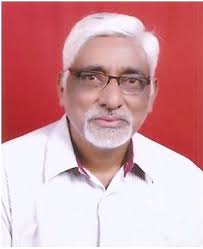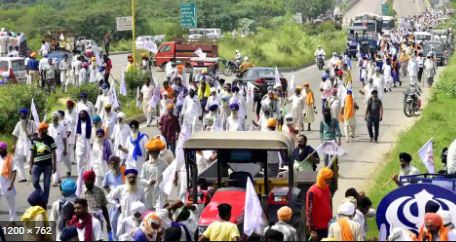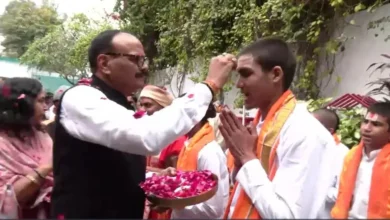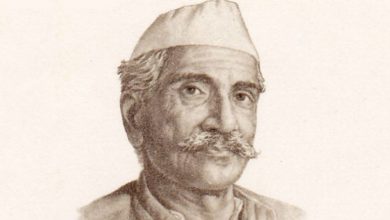Social Ramifications of Farmers’ Agitation
The ongoing farmers’s agitation may or may not succeed in repeal of three central agri marketing laws , but it will have long lasting social and political ramifications says senior journalist Prof Pradeep Mathur in this analysis .
Whatever be the motivation, mass movements, agitations and protest rallies aim at two things – they challenge the established order and seek to break the status quo . In fact they exhibit agitators’ urge, aspirations and a desire to either protect or to further their interests. Agitations may or may not succeed in achieving their goal but they do put an imprint on society and bring about a change in society . The on-going farmers’ agitation is no exception to this. Since the standoff between the agitating farmers and the Centre has vertically divided public opinion for or against the agitation we are not able to appreciate its long term impact .
If the J.P. movement of early 1970s changed the elitist character of our political leadership and paved the way for transfer of power to the middle classes, the Anna Hazare movement of the 2010s put leadership on the defensive for all that was rotten in the system. The fact is that neither the JP movement was able to bring about any semblance of a sampurna kranti ( total revolution ) nor the Anna Movement was able to end corruption. Therefore, whatever be the end result of the farmers’ agitation it will be too much to expect that the post agitation situation will lead to any reforms in our agriculture sector. However, it will bring about a change in the socio –political scenario.
The aim of agitation leaders has been to get what in their view is a better deal for themselves and for those whom they claimed to represent. But a combination of factors such as unexpectedly good response to the agitation, media attention , inapt political handling and insensitivity of the authorities dealing with the situation has prolonged the agitation and changed its character from non-political to political. Therefore, the agitation, which could have ended with settlement on some economic demands of the farmers , will now have a much larger impact on public life.
The agitation has no doubt shifted public discourse from purely emotional issues to real issues of sustenance and empowerment. The emotive slogans based on nationalism, patriotism, and past glory and allegations of suspect loyalty and doubtful commitment to national integrity reflected in terminology like tudke tudke gang have certainly taken a back seat. The focus now is on the economics of farm policies and the impact of the three farm laws on the simple bread and butter issue of small and marginal farmers. With this we can hope that the prevailing cynicism in our public discourse will end and its quality will improve.
The declining appeal of emotive issues will have considerable impact on the electoral scene especially when four important states and one union territory are going for assembly elections in the coming 100 days or less. The ruling BJP which has been thriving on emotional issues will have to change its strategy to ensure mass support in the elections. The fact that emotional issues have started losing their appeal was clearly visible in the Bihar Assembly elections in October-November last
when we witnessed how young Tajeshwi Yadav nearly upstaged mighty BJP and JDU leaders by raising the issue of employment.
More than anything else the agitation has bridged the communal divide by securing wide support from all castes and communities. In west U.P. Muslims and Hindus, who engaged in violent communal riots in the year 2013 , have openly admitted their mistake, expressed regrets and decided to fight as one for repeal of the farm laws. With the momentum gained by the farmers’ agitation the hate campaign against the minorities has certainly weakened. This sure will remove the distortion in the political narrative that we have been witnessing of late and will restore much-desired communal harmony. The bridging of the communal divide will no doubt have its impact in the assembly elections in four states and a union territory to be held in the coming months.
The large scale participation of village women of all ages has given strength to the agitation and a new dimension to the campaign for woman empowerment. Campaigning for the empowerment of women what the feminist movement in India could not achieve in more than 40 years the farmers agitation has achieved in few months.. One only wishes that from this point our rural society moves to ensure equality of gender and break all shackles that bind half of our population in chains.
Similarly the agitation has also revived the process of much-needed initiation of our youth in understanding genuine political issues , a highly desirable activity in any democratic society. which had stopped after student unions were banned.
Since IT revolution and economic liberalization of 1980s and advent of consumerism the Indian middle class has been moving away from the culture of protest and agitation thus denying the workers and marginal farmers the much needed leadership. Single-minded pursuit of careerism and the desire for more money also gave it a mental attitude to accommodate with what was unjust ,wrong and rotten in the system. The words like social consciousness , compassion, equality and social justice went out of use in the mad rush of consumerism with the result that the educated urban middle class which led the freedom struggle became indifferent to the aspirations of the masses.
A revival of the culture of mass movements will perhaps be the most significant outcome of the farmers’ agitation and this is what the present establishment fears most . This revival will give a new lease of life to the moribund trade union movement and the genuine demands of workers may be raised with much more power to the chagrin of our corporate which enjoys patronage of the present government.
The farmers’ struggle has received support from many quarters including the urban-based middle class intelligentsia. Let us hope that it will help this agitation to bridge the consumerism-created urban-rural divide and sensitize the city-based apolitical sections of our society to feel more and be humane to their less fortunate country men and women who toil hard in the fields to feed them.

Prof Pradeep Mathur, New Delhi
———–





